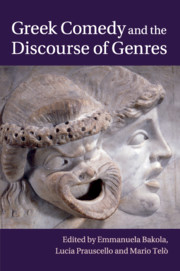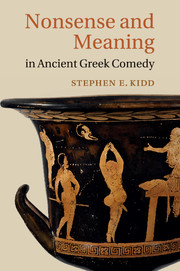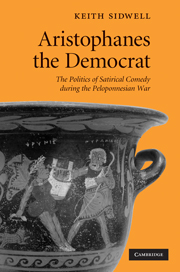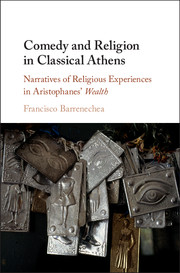Greek Comedy and the Discourse of Genres
Recent scholarship has acknowledged that the intertextual discourse of ancient comedy with previous and contemporary literary traditions is not limited to tragedy. This book is a timely response to the more sophisticated and theory-grounded way of viewing comedy's interactions with its cultural and intellectual context. It shows that in the process of its self-definition, comedy emerges as voracious and multifarious with a wide spectrum of literary, sub-literary and paraliterary traditions, the engagement with which emerges as central to its projected literary identity and, subsequently, to the reception of the genre itself. Comedy's self-definition through generic discourse far transcends the (narrowly conceived) 'high-low' division of genres. This book explores ancient comedy's interactions with Homeric and Hesiodic epic, iambos, lyric, tragedy, the fable tradition, the ritual performances of the Greek polis, and its reception in Platonic writings and Alexandrian scholarship, within a unified interpretative framework.
- Provides the most wide-ranging treatment of Old Comedy from the viewpoint of its multifarious dialogues with other literary, subliterary and paraliterary traditions
- Explores comedy's interactions with certain literary traditions through new or hitherto underexplored approaches
- Illustrates how self-reflexivity, a feature of comedy across periods and cultures, is inextricably connected to intergeneric discourse
Reviews & endorsements
'… this volume accomplishes its aims and offers an important step forward in the study of comedy's omnivorous tendencies.' Donald Sells, Phoenix
'As is bound to be the case with a volume emanating from a conference … the essays [do not] exhaust the range of traditions to which comedy turns its attention. Readers will find much of interest in them … and their combined value is to demonstrate the variegated patterns of literary subsumed within comedy and to point the way for further inquiry.' Zachary Biles, De Novis Libris Iudicia
Product details
May 2020Paperback
9781108820080
420 pages
150 × 230 × 20 mm
0.62kg
13 b/w illus.
Available
Table of Contents
- Introduction: comedy as a fabric of generic discourse Emmanuela Bakola, Lucia Prauscello and Mario Telò
- Part I. Comedy and Genre: Self-Definition and Development:
- 1. Greek dramatic genres: theoretical perspectives Michael Silk
- 2. Comedy and the Pompê: Dionysian genre-crossing Eric Csapo
- 3. Iambos, comedy and the question of generic affiliation Ralph Rosen
- Part II. Comedy and Genres in Dialogue:
- 4. Paraepic comedy: point(s) and practices Martin Revermann
- 5. Epic, nostos and generic genealogy in Aristophanes' Peace Mario Telò
- 6. Comedy and the civic chorus Chris Carey
- 7. Aristophanes' Simonides: lyric models for praise and blame Richard Rawles
- 8. Comedy versus tragedy in Wasps Matthew Wright
- 9. Crime and punishment: Cratinus on Aeschylus, on the metaphysics and on the politics of wealth Emmanuela Bakola
- 10. From Achilles' horses to a cheese-seller's shop: on the history of the guessing game in Greek drama Marco Fantuzzi and David Konstan
- 11. The Aesopic in Greek comedy Edith Hall
- 12. The mirror of Aristophanes: the winged ethnographers of Birds (1470–93, 1553–64, 1694–1705) Jeffrey Rusten
- Part III. The Reception of Comedy and Comic Discourse:
- 13. Comedy and comic discourse in Plato's Laws Lucia Prauscello
- 14. Comedy and the Pleiad: Alexandrian tragedians and the birth of comic scholarship Nick Lowe.





